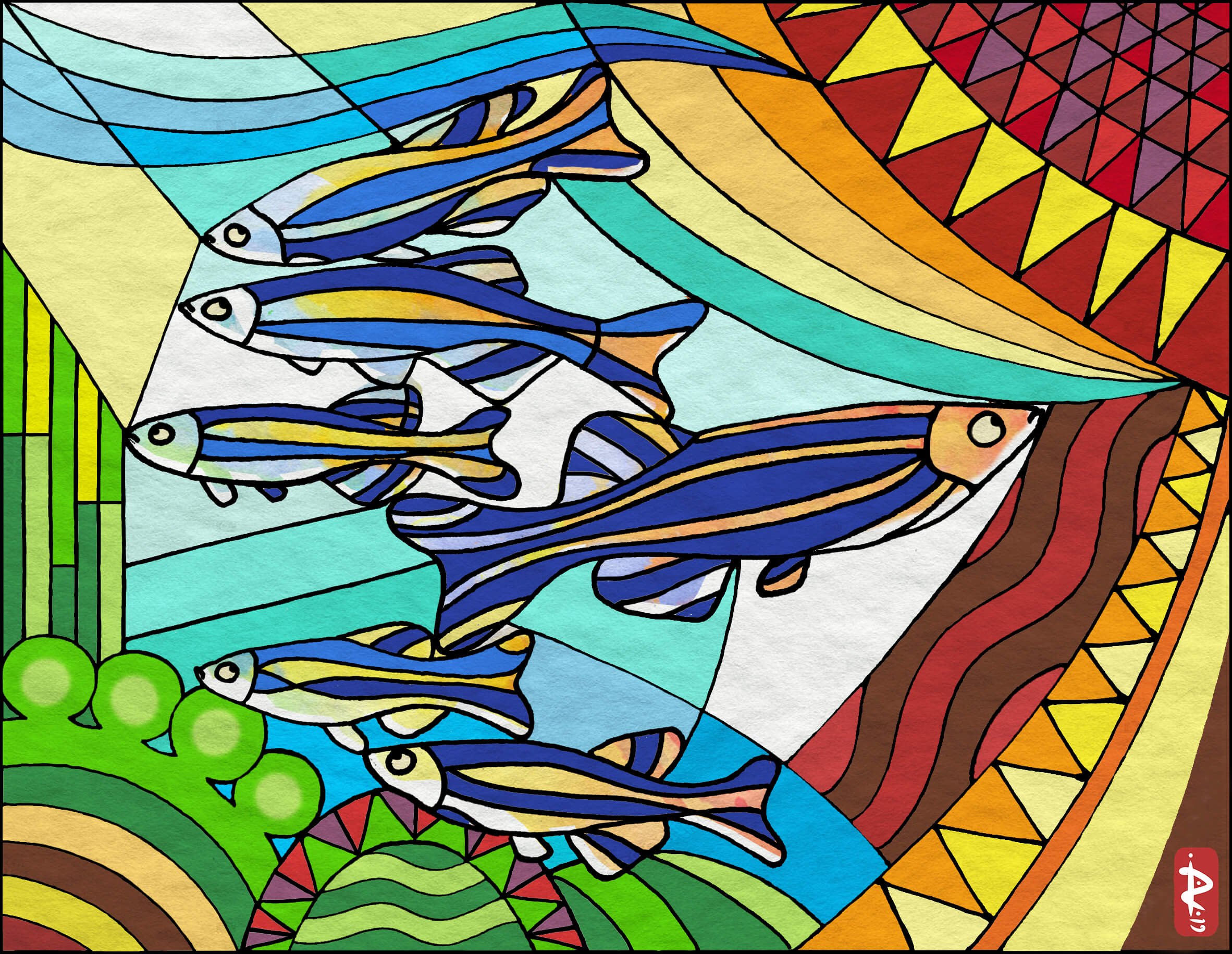#SCIENCE WRITING/

- Detail of “Fear Contagion in Zebrafish”, (Rodrigo Abril, Editorial Illustration)
Project: Social Animals (in preparation)
Client: Book publisher (for Pop Science book collection)
Role: Writer and Illustrator
Excerpt from Social Animals
Chapter 3 - Eavesdropping
[...]
“But eavesdropping is not solely a human invention. Long before humans (Homo sapiens) eavesdropped behind closed doors or peeked through keyholes, many other animals were eavesdropping in their daily lives. Scientific studies of animal behaviour have shown some form of eavesdropping in over 70 species of nonhuman animals so far. Not only in mammals, but also in birds, fish, reptiles, crustaceans, and insects. And the list continues to grow!
We are, therefore, living on a planet of snoops. But is this really so surprising? In nature, communication rarely happens in private. Any conversation or exchange of information is always accessible to someone nearby, within earshot, eyesight, scent range, or any other convenient sense. There are ample opportunities out there for us to gain valuable knowledge if we eavesdrop on others. And as we will see next, nature never wastes opportunities.”
[...]
“Fish, contrary to popular belief, are increasingly astounding scientists with the complexity of their social behaviour. A perfect example is the zebrafish (Danio rerio), a small freshwater fish native to the southeastern Himalayas, that lives in small shoals. This unsuspected fish, which can be found in many home aquariums, has been used for decades in genetic and human disease studies, and it is proving really helpful for scientists trying to understand how our brains work when it comes to social behaviours.
In behaviour studies conducted by this author* and colleagues, zebrafish have shown the ability not only to eavesdrop on real conflicts (usually for territory) between fellow zebrafish, but also to be attentive spectators in private cinema sessions (specially designed for fish by the scientists!), where they watched manipulated films (rigged fights) of different pairs of zebrafish on a screen.
These experiments revealed that these nosy fish, much like humans, cannot resist eavesdropping on altercations between others, and they are particularly attentive when the outcome (winner and loser) has not yet been determined. As a famous coach once said, "predictions only at the end of the game", and it is always wise (and safer) to find out if in the future one might be dealing with a wimp, or the Mike Tyson of zebrafish.”
